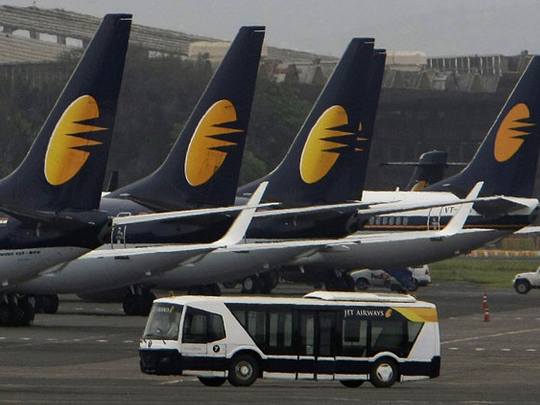
Dubai: Following Wednesday’s $379 million (Dh1.39 billion) equity stake deal between Jet Airways (India) and Etihad Airways, the question emerges if or not other Indian carriers will follow suit.
While Jet Airways, India’s largest airline by market share, has managed to secure its fate by selling its 24 per cent to Abu Dhabi-based Etihad, the Indian aviation market as such seems to be at a delicate crossroads of sorts at present, especially with its national carrier, Air India in a tailspin and the only other full-service carrier, Kingfisher having lost its licence and hence currently dormant.
As for the remaining two – budget carriers IndiGo and SpiceJet, analysts don’t see them exploring global alliances so soon.
The Indian government relaxed ownership rules in September last year, allowing foreign carriers to buy up to 49 per cent in local carriers, and Jet-Etihad deal was the first one since then.
Asked if IndiGo and SpiceJet, both of which now have international operations, including to Dubai, would be seen exploring similar alliances, Peter Morris, chief economist at aviation consultancy, Ascend, told Gulf News: “The key thing is that Jet is a full-service Indian airline with substantial international market experience. Neither SpiceJet nor IndiGo fit this category, and their business models were not developed to handle large volumes of connecting traffic. They would not then offer an international partner the same continuity and connectivity that Jet Airways can.”
On the other hand, SpiceJet is said to have been in stake sale talks with Qatar Airways even though its management has denied it repeatedly.
Echoing Morris’ views is analyst Saj Ahmad of StrategicAero Research. He says: “Low-cost airlines like IndiGo and SpiceJet will not worry too much as they don’t directly compete in that segment where Jet and Etihad operate. If anything, they will be more keen to stave off the competitive threat of AirAsia.”
AirAsia India, the proposed budget airline of India’s Tata group and AirAsia is currently in the process of applying for a licence to kick off operations.
For the struggling state-owned Air India – Jet’s main competitor, the Jet-Etihad deal undoubtedly poses a huge threat. As analyst Ernest S Arvai, the CEO of The Arvai Group, points out: “The broader question now is how will beleaguered, bureaucratic, and financially haemorrhaging Air India fare. It may be sitting out on the sidelines while India’s other airlines, including profitable low-cost carriers, find international dance partners and improve their competitive positions.”
A day after the Jet-Etihad deal, India’s Civil Aviation Minister, Ajit Singh, reportedly said that Air India needs to shape up to stay competitive and strategise, adding that the national carrier has very limited options.
Analysts seem to agree. “Air India cannot afford a stronger and better competitor. They will use this deal as a way to cry for even more help,” points out US-based analyst, Addison Schonland, founder and partner at AirInsight.











